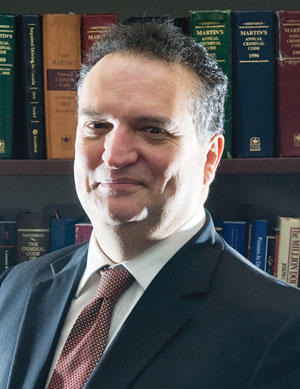As the federal government touts its impending victims bill of rights early this year, some defence lawyers say such a move would complicate an already complex criminal justice system and pressure prosecutors to “serve two masters.”

After a six-month consultation process, the federal government says it’s about to introduce a victims bill of rights that will ensure victims of crime are more “informed and involved” at every stage of the criminal justice system.
“This year, we have spoken with many Canadians across the country to learn how we can improve the experience of victims as they cope with an often intimidating criminal justice system,” said Justice Minister Peter MacKay on Dec. 27.
“The stories and experiences that have been shared with us will be invaluable in helping us develop legislation that aims to improve the overall treatment of victims and their families; helps ensure that victims are respected and, where possible, informed of decisions that affect them; and also addresses the rights of victims in Canada and entrenches those rights in law.”
But criminal lawyers say more involvement for complainants may mean increased pressure on prosecutors to seek convictions instead of serving the rule of law.
Traditionally, the involvement of complainants is limited to the role of a witness and, if there’s a conviction, to a victim impact statement. Accommodating victims even further in the process will add complexity to the Crown’s role, according to Ottawa lawyer Douglas Baum.
“Now, on top of doing their job, they’re going to have the victims rights lobby peering over their shoulders, scrutinizing everything they do. And I don’t see how the prosecution can serve two masters like that,” he says, adding Crowns may also face pressure to continue prosecuting a case in which a lack of evidence would otherwise merit dropping charges.
“As a defence lawyer, I have a sworn duty to my client. But when the prosecutor comes to court, their oath is to serve the state; it’s not to serve the individual complainant. And the more power the state gives to the victim, the less justice you’re going to have. It doesn’t bode well for an impartial system,” adds Baum.
Through efforts like victim and witness assistance programs, the Crown attorneys’ office already pays a considerable amount of attention to victims, Baum notes. Services under the program include assisting witnesses, bringing them to court, and making them feel at ease with the process.
“But what happens when you try to enshrine those rights in a bill of rights? What does it mean? Does it mean that the prosecutor who is on that case is now my counsel? Do I get to call the prosecutor and get updates on the case? Does it mean that the investigating officer has to keep me informed of everything that happens?” asks Baum.
For Minister of Public Safety and Emergency Preparedness Steven Blaney, the bill of rights will mean “a more effective voice” for victims.
“Our government is standing up for victims of crime and ensuring that victims have a more effective voice in the criminal justice system,” said Blaney.
“We have taken concrete action to ensure the voices of victims of crime are heard. I am pleased to continue our work to formally recognize the rights of victims of crime in the criminal justice and correctional systems.”
But Criminal Lawyers’ Association president Anthony Moustacalis, who was a prosecutor for five years, says the bill of rights isn’t likely to address the two issues that are most important to victims: a speedy process and adequate compensation. At best, a victims bill of rights is specious, says Moustacalis.
“This government is very good at passing legislation that sounds good but has no real effect on the constituents that it’s seeking to support. Victims aren’t going to get anything more out of this than they already have,” he says, adding Ontario’s attorney general is already good at letting victims know of important updates, reviewing the case with them, and explaining the compensation that’s available to them. “The system has a lot of balance in it.”
The best way to further the victim’s cause would be to provide more money and legal advice to them, Moustacalis adds. In Ontario, the maximum amount a victim of any crime can receive in compensation is $25,000.
Recently, the federal government doubled victim surcharge fines and made them mandatory, a move MacKay described as the government “sending a signal” that offenders must pay victims for the damage they caused. But the legislation has drawn criticism for taking away judicial discretion. Several judges have found ways to resist the legislation by giving criminals a very long time to pay the fine or not imposing it at all. The government is now appealing some of those decisions.
According to Moustacalis, the government is “looking for money from those who cannot afford it” through its surcharge legislation. The federal government says those who are unable to pay the surcharge “will be able to discharge the victim surcharge by participating in a fine option program or through alternative mechanisms.” No such program exists in Ontario, however.

 After a six-month consultation process, the federal government says it’s about to introduce a victims bill of rights that will ensure victims of crime are more “informed and involved” at every stage of the criminal justice system.
After a six-month consultation process, the federal government says it’s about to introduce a victims bill of rights that will ensure victims of crime are more “informed and involved” at every stage of the criminal justice system.